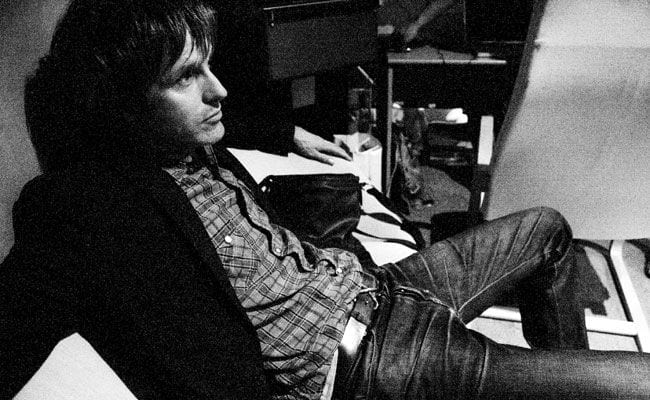
It’s easy to respect Steve Poltz’s work ethic. 20 years into his career and there isn’t much the jokester troubador hasn’t done: double-digit studio albums (including two new upcoming releases), multiple world tours, a children’s album, jingles, a turn as bandleader on the The Hugh Thompson Show, a self-parodying role in web series Up The Creek, and, now, a documentary soundtrack. Poltz says he took on the project, Running Wild: The Life of Dayton O. Hyde, for the challenge. “I like deadlines and restraints,” he said. “I just try to do the best I can.” Poltz is a musical rambler, tumbleweeding from project to project, and this blue-collar approach suits him tremendously well.
Dayton Hyde, the documentary’s subject, is a rambler, too. Born into a family of modest means with dreams of making it big out west, Hyde became first a cowboy, then a poet, then a soldier, then a conservationist for his work with wild mustangs, then a pariah among conservationists for his work with sandhill cranes. Running Wild freewheels through Hyde’s life and accomplishments in the same way that Poltz’s Americana score glides through the airy open spaces of the prairie, landing periodically to tell a story or two.
“Song for Hawk” is the undeniable gem of the soundtrack, a song which soars and dives and captures the spirit of the Running Wild project. The backup vocals and string work by the incredibly talented Allie Gonino are subtle and expressive, complementing the track without overpowering it. There are other original highlights. “Dirt Cowboy” maintains a chugging pace and a before-the-railroads-there-was-this narrative, and “El Centro Instrumental” is worth multiple listens (Check the spastic lyric version with the subtitle “She’s Working at the Mall” on YouTube).
The problems, though, are two-fold and hard to ignore. One is the ratio of new material to old. Treating his songbook as a grab bag, Poltz reuses four tracks from 2012’s Noineen Noiny Noin — “Spirit Hands”, “I Pray it Never Comes to This”, “Ordinary Dude”, and “Giving Thanks”, a full third of that album, as well as “Song for Kosovo” from 2010’s Dreamhouse. The songs are no less solid than they were back then, but they fit less organically here. Including the instrumental version of “Giving Thanks” (cheekily entitled “Giving Gracias”), and “Phantom Love”, a track neither written nor performed by Poltz, barely half of the soundtrack is new material.
The second issue is that the album struggles to hang together because of the plethora of instrumental mini-songs. Half a dozen tracks are less than a minute in length and five more come in under 1:30. These tracks add texture to the film but don’t serve the album well. The result is that Running Wild sounds like an odds-and-sods collection rather than a distinct album with a vision, one worthy of being purchased in addition to the film. Dayton Hyde has had his share of detractors, but no one can deny that he is a man of spectacular vision. The documentary captures this. The soundtrack, not as much.

